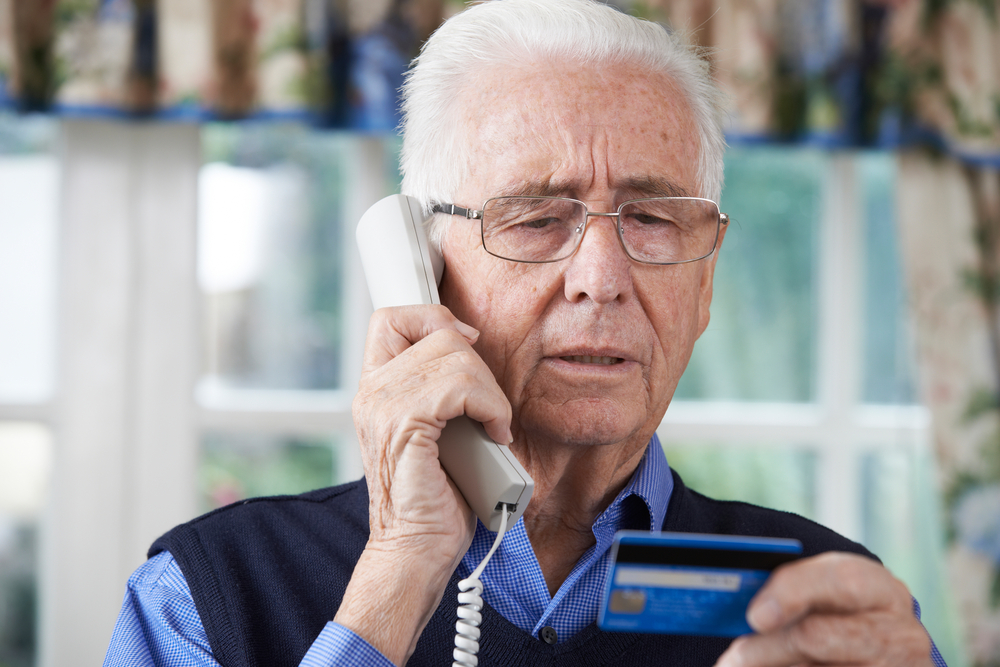
Seniors may be contacted by a telemarketer by phone with the hopes of getting them to provide their credit card information and commit to a purchase of something that they didn’t request, don’t need, or don’t want.
When a good deal isn’t
All of us, including our clients and the general public, see and hear offers on TV (the infomercials and regular commercials), the internet (popup ads and teaser articles), email (regular and junk), over the phone (actually talking with us or voice mail), direct mail, texting, and in the regular mail. Some of it is spam, and some of it is phishing. Telemarketers have a nasty habit of replacing or hiding their own phone numbers with that of someone else. It’s not uncommon for them to borrow the number of a company or agency that we might recognize just to get us to answer or in an attempt to legitimize their call. That’s part of their cover and deception.
We want to believe offers that we receive, we really do. However, we have been fooled and misled so much that we now tend to disbelieve most of what we hear. Even when we receive a legitimate offer, it takes us a while to accept it.
Be fooled into thinking we are going to be able to receive TV programming or some item that we want for less than what it normally would cost is very appealing to us – likely so appealing that we will be tempted to go along and accept their offer. Nothing wrong so far, but as soon as we give them a credit or debit card number, access to our bank account, or our driver’s license number to demonstrate that we are “real” and that they are talking to the “right person.” We have lost. Potentially, this can be very costly, and the scoundrels calling us are fully aware of this.
Gaining our confidence
The people calling or contacting us have very compelling stories on how they have selected us for them to help. It’s almost believable, so we have to be quite careful.
They are counting on two basic factors of human nature: our willingness to help someone else and our interest in obtaining something at a bargain (even something we don’t even need). It’s even harder to resist the temptation when it is something we want to have or could use, or it sounds like it’s a good offer with a company that we already use for similar services. The problem is that they don’t represent this company, and any payment we give them will only help them and not us.
The callers count on having an engaging conversation with us so it will be easier for them to appear as if they are interested in helping us. Generally, the longer the phone call and the more questions they ask, the more it is not a legitimate call. We need to alert our clients that such calls are risky.
When we don’t just hang up
When we get a piece of junk mail, it’s easy to toss it. When we get an email that suggests something a little too good to be true, it’s natural to be somewhat interested. However, we must be very careful. Not everyone – even when being careful – is able to walk away easily from enticing presentations. Then, when it’s a phone call, this is the hardest to end. Short of just hanging up the moment we get the call, remaining on it and following along with the caller’s story can get us agreeing to things that we didn’t intend.
This is part of the risk. We want to be polite. We give the caller, when they are pleasant and not overly pushy, a chance to draw us into the conversation. Then, when we realize that this may not be going in the direction we thought, it’s harder to stop. We can still hang up, but maybe we have already answered some personal questions that we should not have done.
Helping our clients
These issues are what our aging in place clients – of any age but especially those who are older – are exposed to on a regular basis. Those with cell phones and email accounts likely experience it more than others, but we need to be diligent in reminding them to be safe. As people have been adjusting to the effects of the pandemic and remaining at home more than usual or are looking for ways to have some contact with the outside world, they may be more vulnerable to incoming phone calls or mail solicitations.
In addition to our role in helping people to remain physically safe in their homes, here is a big opportunity for us to keep people safe from becoming a victim of someone’s scheme to defraud them. These are discussions we need to have with our clients and family about the need to be doubly diligent in responding to requests for information over the phone or agreeing to purchase something just because it sounds like a great deal or the caller is very persuasive and convincing.
